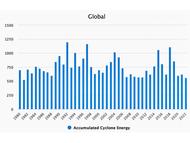Positive Weather News - ORIGINAL CONTENT
- By:
- Edward A. Reid Jr.
- Posted On:
- Mar 14, 2023 at 7:00 AM
- Category
- Climate Change
Weather events which cause significant loss and damage include tropical cyclones, tornadoes, floods, drought and some wildfires. The consensed climate science community has projected that each of these weather events would become more frequent, more powerful or of longer duration as the result of anthropogenic climate change. These projections have been based on the output of climate models. Recently, the consensed climate science community has begun claiming that portions of the damage caused by these weather events can be attributed to climate change, based on the outputs of attribution models. However, there is little or no evidence that the projections have been correct or that the purported attribution is accurate.
Tropical Cyclone Season
The 2022 tropical cyclone season was projected to be more active than average. However, the Accumulated Cyclone Energy (ACE), which combines frequency, intensity and duration for tropical cyclones globally was approximately 29% below average according to the NOAA National Hurricane Center data, as shown in the graph below from Colorado State University. There is no apparent upward trend in global ACE over the past 42 years.
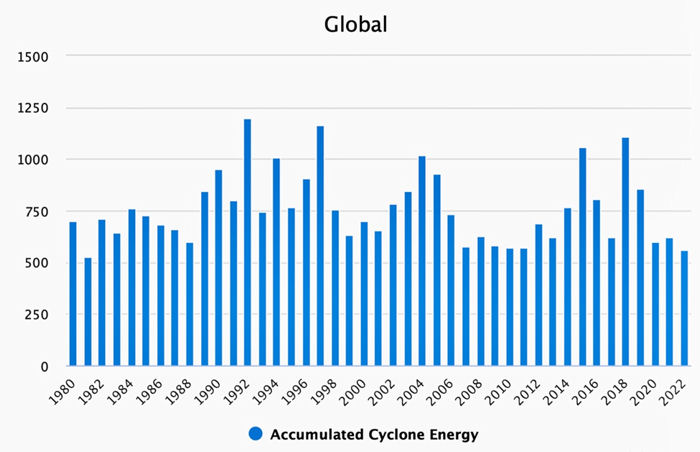
Tornado Season
The US tornado season in 2022 was slightly more active than average, as shown in the graph below.
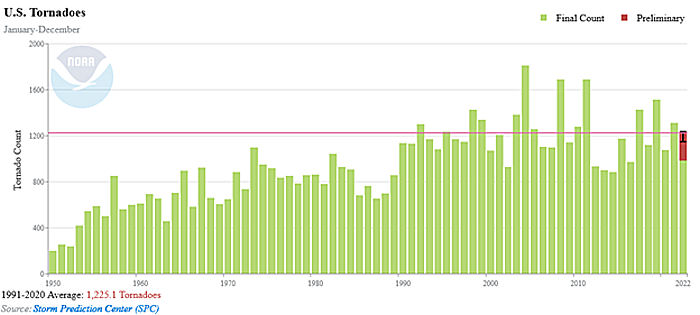
While there is an upward trend in the number of tornadoes reported, some of this trend is attributed to the availability of satellite imagery which permitted detection of tornadoes which might otherwise not have been reported.
However, there is a definite downward trend in the frequency of strong tornadoes, as shown in the graph below.
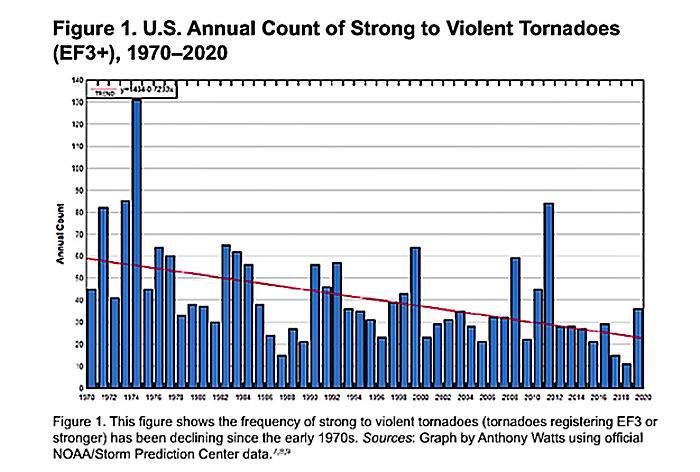
Global Weather Losses
The trends in both global weather disaster frequency and losses from global weather disasters, are shown in the graphs below.
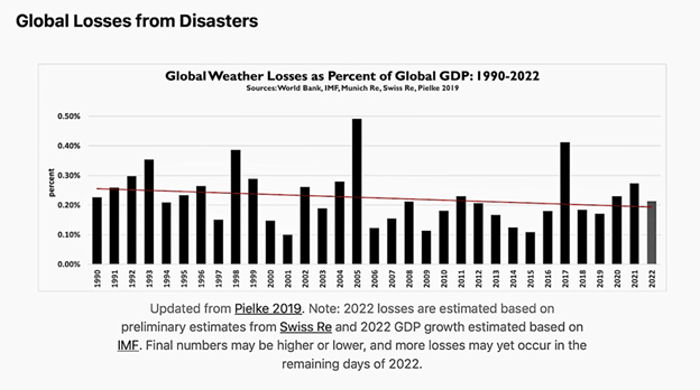
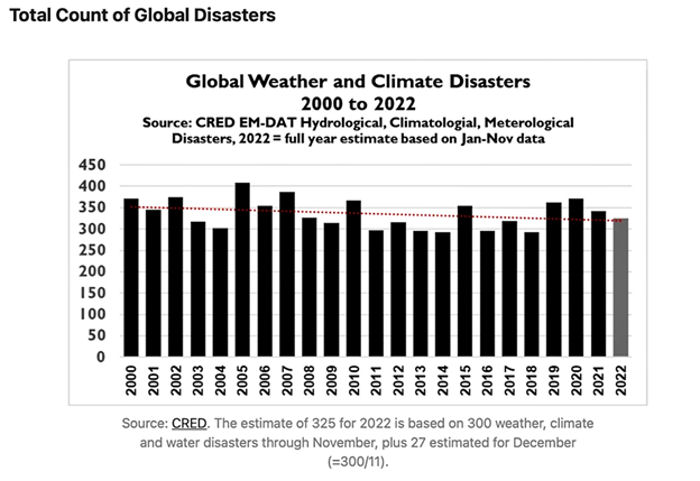
There is clearly no upward trend in global disaster numbers or losses which could be associated with anthropogenic climate change.
Droughts and Floods
Historical data regarding droughts and floods are limited on a global basis. There appear to be no clear trends in frequency, duration or severity attributable to anthropogenic climate change, though the climate models project future increases. The IPCC reports that precipitation has increased over the mid-latitudes of the Northern Hemisphere but notes no specific instances of reduced precipitation. The IPCC also has low confidence that there has been an increase in flooding globally. There have been increases in the severity of flooding, though much of the change is attributable to increased areas of impermeable surfaces, which reduce soil absorption and increase runoff. There is also an increasing trend in financial damage from flooding, but most of that increase is attributable to increased property values and continued construction in known flood plains.
Wildfires
Wildfires are often discussed in association with weather. However, the only weather-related cause of wildfires is lightning. Other causes of wildfires include electricity transmission line failures, accidental ignitions and arson. There has been a dramatic decrease in wildfire acres burned in the US, as shown in the graph below.
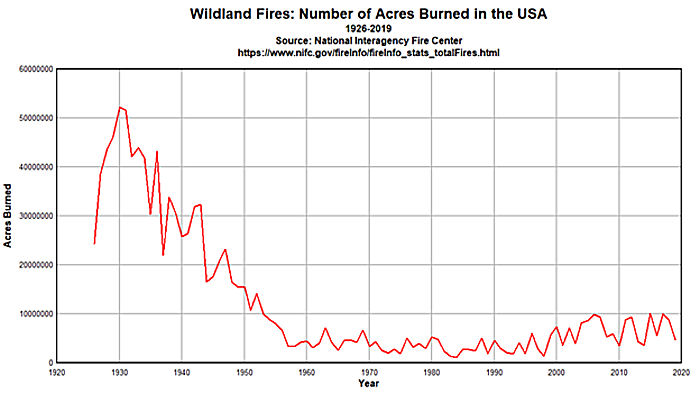
Some of the severity of wildfires is attributable to changes in forestry management, including failure to remove forest debris.
In summary, the good news about weather is that it does not appear to be worsening over time as the result of climate change.

